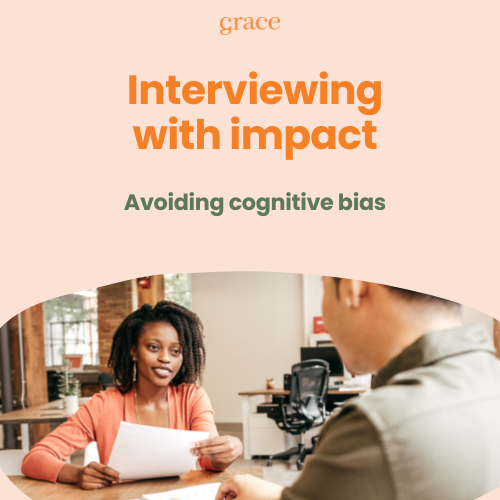Interview techniques are constantly evolving to match hiring trends. What might have been the perfect candidate 10 years ago, could be far from the perfect fit for your company today.
As hiring managers, whether you’re old pros or green newbies, it’s your responsibility to source the right person for the job.
We understand that this is no small feat! To help streamline your process and elevate your chances of finding that perfect candidate, we have written a guide detailing how to overcome the most common hiring hurdle; cognitive bias.
What's included?




Download it today! Keep scrolling for a sneak peek…

Want a sneak peek?
How can cognitive bias come into play?
🟠You may feel an affinity with candidates from reading their CV; perhaps you share common hobbies or attended the same university.
🟠Unconscious bias can come into play without us realising if we know – or assume – the gender, race or age of a candidate. We may think that an older candidate wouldn’t fit into a predominately younger team, for example. But if anyone’s seen The Intern, we know that’s not necessarily true.
🟠Hiring managers can also make assumptions about a candidate and reject them based on body language, such as not making eye contact, having their arms crossed during the interview or not giving a ‘good’ handshake. There could be very good reasons why candidates may present any of these so called ‘negative’ traits, for example, neurodiversity, but it doesn’t mean they wouldn’t be good at the job.
If the hiring process up to and including the interview is biased, even unwittingly, it can lead to bad hiring decisions, which leads to high turnover rates. It can also affect your efforts to increase diversity in your workforce and become a more inclusive employer.
We, as humans, have innate preferences so it’s impossible to remove 100% of interview bias. But there are steps that you can take to remove it as much as possible and increase your chances to finding the right fit for your next vacancy.
